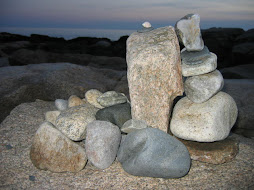Scott Walker, as usual, was operating in another sphere altogether. Some of the song lengths on Scott 3 (of his own composition, not the Brel songs that close the album out) are as follows:
We Came Through 1:59
Butterfly 1:42
30 Century Man 1:29
Winter Night 1:45
Then on Scott 4 there is On Your Own Again which clocks in at 1:48 and 'Til The Band Comes in has Jean The Machine at 2:10 and Cowbell Shakin' at 1:06, barely a snippet.
This seems to be a trend in his work of the period. When compared with the work he's been doing over the past two decades they seem like thoughts that flicker across his mind. Song lengths from his past three albums routinely start at seven minutes at least and stretch to over twenty on Bish Bosch.
But these miniatures as he calls them are not underdone. They are fully realized. They are exactly as long as they need to be. Nothing superfluous, nothing redundant, no need to reiterate.
In fact, if I didn't point out how short We Came Through is you would undoubtedly classify it as an epic. I am linking to a video that pairs the song with a car driving up a parking garage ramp. Ground floor to roof and the song is over. The lyrics posted on the video are incorrect in one crucial spot so I'm going to post them here.
Watch Scott Walker's miniature epic "We Came Through" from Scott 3.
We Came Through
We came through
We came riding through like warriors from afar
Our black horses danced upon the graves
Of yesterday's desires
Haunted by our visions framed in fire
I greet you
For you still believe in what's behind the door
You see children freeze upon their knees
And praying to the wind
To send their grey Madonnas back again
Fire the guns
And salute the men who died for freedom's sake
And we'll weep tonight but we won't lie awake
Gazing up at statues dressed in stars
We won't dream
For they don't come true for us, not anymore
They've run far away to hide in caves
With haggard burning eyes
Their icy voices tear our hearts like knives
We came through
Like the Gothic monsters perched on Notre Dame
We observed the naked souls of gutters
Pouring forth mankind
Smothered in an avalanche of time
And we're giants
As we watch our kings and countries raise their shields
And Guevera dies encased in his ideals
And as Luther King's predictions fade from view
We came through
We came through
We came riding through
All that in under two minutes.
Miniature? Hardly.

